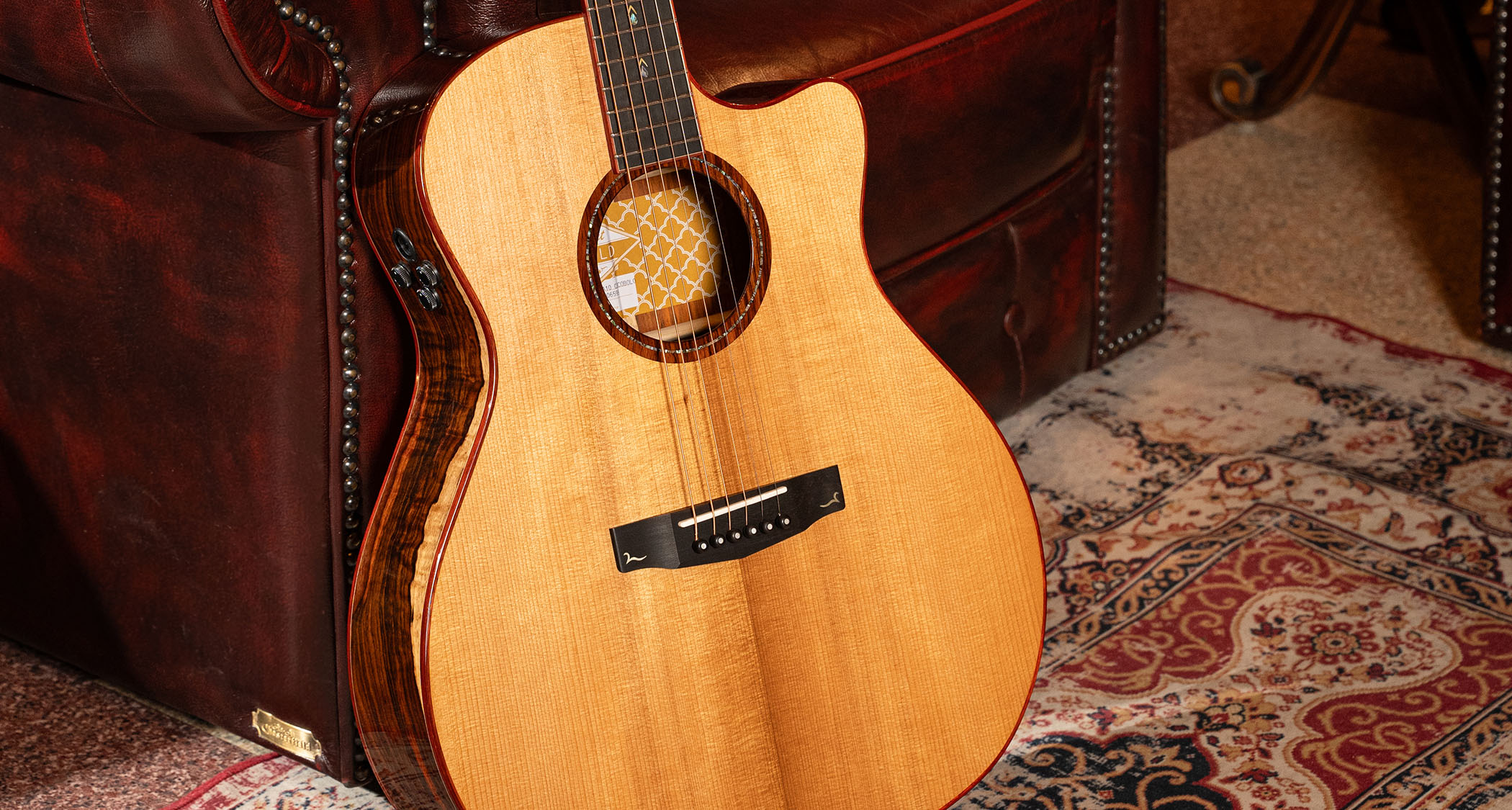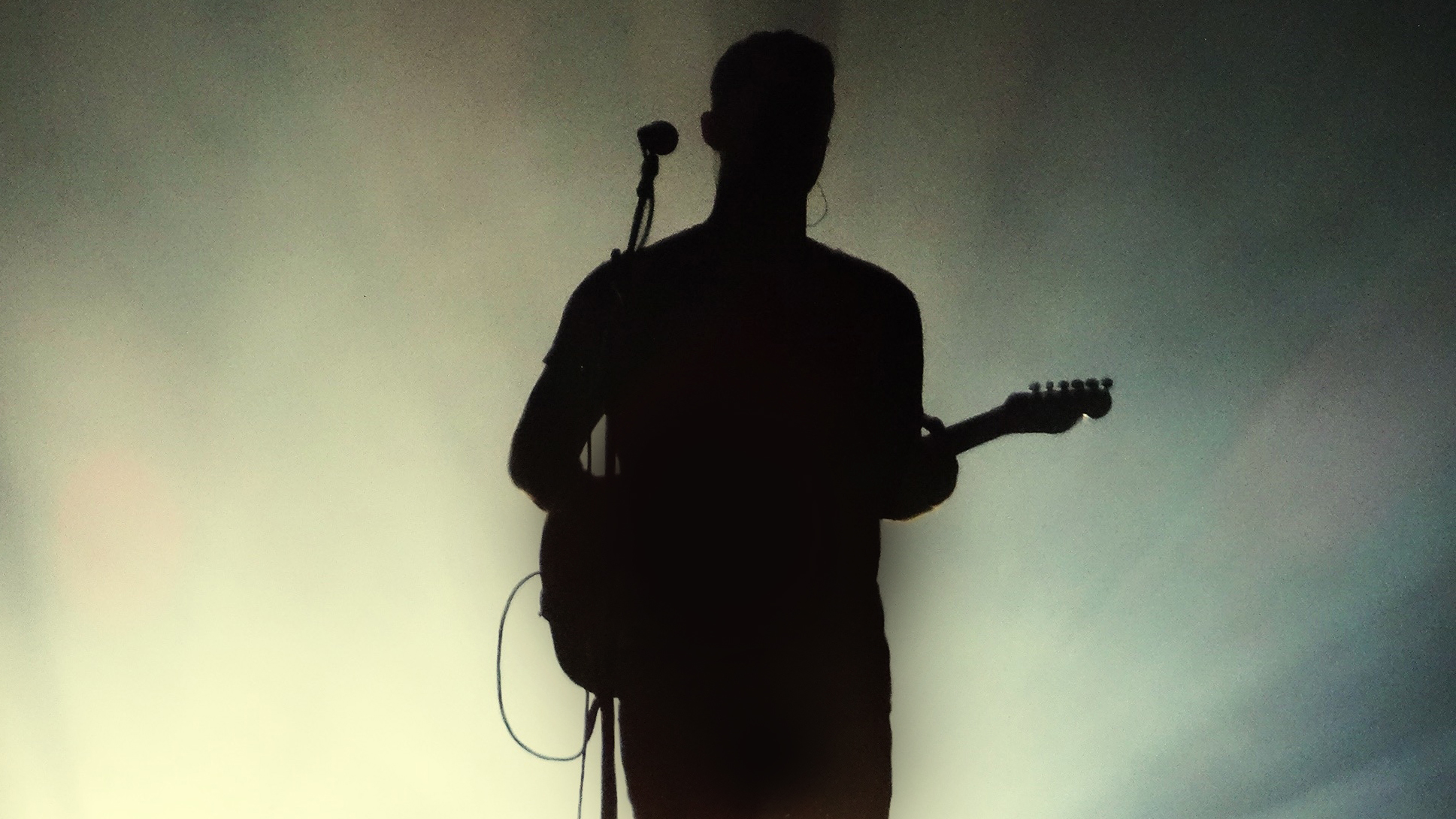
Not every player gets their dues, but who better to redress the balance than the guitarists they inspire? Here we have an all-star cast from across the genres to do just that – including Robben Ford, Dave Mustaine, Tosin Abasi, Mark Tremonti and Larry Carlton paying tribute to the players who have inspired them.
Who did they pick? Read on to find out!
1. Mike Bloomfield by Robben Ford
“There was an emotional power combined with technical proficiency that hadn’t been present in popular American music up to that point"
“He was the first guitarist to inspire me to get serious about the electric guitar. His playing on the first and second Paul Butterfield Blues Band records was absolutely unprecedented. No one had ever played the guitar as ferociously as he did in a blues setting. Truly the first white blues guitar virtuoso.
“There was an emotional power combined with technical proficiency that hadn’t been present in popular American music up to that point. That power was traceable to BB King, Muddy Waters and the many other great blues artists he was listening to and befriending in Chicago. He brought it to a larger audience with Butterfield and was instrumental in turning the world on to these great blues masters.
“I used to sound just like him. My brothers, Patrick (drums), Mark (blues harp), and I started playing this music in our teens and recorded A Tribute To Mike Bloomfield for Blue Rock’it Records. The music is so much a part of our DNA at this point that it couldn’t have gone smoother.
“Patrick Ford produced and chose the material a nd I particularly like the version of Paul Simon’s Feelin’ Groovy taken from Mike Bloomfield and Al Kooper Live At The Fillmore, and It’s About Time written by Nick Gravenites.
“Mike Bloomfield is my premiere guitar influence. Not only was he one hell of a blues player, he also ventured into lengthy jazz and Eastern-influenced improvisations that opened the minds of anyone interested in the electric guitar – before Hendrix and Clapton. For me he was The Man. And still is.”
Get the MusicRadar Newsletter
Want all the hottest music and gear news, reviews, deals, features and more, direct to your inbox? Sign up here.
2. Audley Freed by Mark Tremonti
“I delved into his style and it really loosened up my own playing"
“Not enough people seem to know about him, but that guy is incredible. I grew u p playing metal – riffy music with speed mechanics. The older I got, the more I wanted to smooth out my p laying and make it less stiff – and Audley Freed’s playing is about the slinkiest and greasiest you can find.
“I delved into his style and it really loosened up my own playing – it made it flow more. It’s like taking WD-40 to your playing when you learn some Audley Freed licks. I’ve heard he’s the kind of guy that keeps to himself and just wants to play so maybe he’s not in the limelight for more people to notice how good he is.
“I’d strongly recommend the Cry Of Love albums to newcomers – both have great stuff on them. Myles [Kennedy, Alter Bridge frontman] found a live album of him and Warren Haynes playing Houses Of The Holy and that’s worth checking out [Freed joined Haynes’ Govt Mule onstage in Minnesota last Halloween to play the Led Zeppelin album in its entirety].”
3. Junior Kimbrough by Dan Auerbach
“It’s hard to put into words, but when I first heard his music it made an immediate connection; his playing, his style – everything about him I loved. Somehow what Junior played didn’t fit into any particular musical genre, and it just suited the landscape where he lived.
“When you travel around that Mississippi hill country, you know that music like that couldn’t have been made anywhere else; a very primitive sound, very minimal and very obviously self taught.
“I love any kind of art that’s outside the mainstream and Junior definitely fitted that bill, he was his own person, taught his band how to play and with his club, created his own little world where he could nurture just what he wanted to do.
“I tried to see him twice – drove down to Mississippi, which is a 20- hour drive, and both times he was sick and on the decline with his illness. But I got to see his whole family play – his son David plays his songs really well – in his club, Junior’s Juke Joint, before it got burnt down [in April 2000].
“Hearing Junior Kimbrough was what made me want to play music – and it mad e me believe that I was alright doing what I was doing.”
4. Chris Whitley by Joe Bonamassa
"He truly was one of the great guitar players of his generation"
“I’d never been blown off the stage by one man and one guitar before and Chris Whitley was the man to do it. We were a pretty good three-piece band, we’d just done a DVD [in 2000] that we were really happy with and the crowd really liked us.
“Chris] was very nice to us and said, whatever you need, room-wise, and couldn’t have been more of a gentleman. After we were done, he proceeded to just whup my ass from China to New York City. I just sat there and took it like a man! I watched him play his Dobro and it was so loud and powerful and he’d sing…
“It was his way of attacking chords and voicing chords, and he’d play drones almost like in Indian music. It was enthralling to watch. He’s probably known more as a songwriter, but as a guitar player his style and his way of playing chords was truly unique and for him to be forgotten… Chris Whitley in 2000, even after he’d had his peak, we were only playing to about 80 people.
“He truly was one of the great guitar players of his generation – even though he isn’t even really thought of as a guitar player.”
5. Kelly Joe Phelps by Martin Harley
“I first heard his music on a Guitarist magazine compilation of all places – the song was Katy from Shine Eyed Mr Zen. I was sitting in my kitchen and put that on and was just blown away. His music is very introspective; it’s very dark and deep and that drew me in. Kelly introduced me to a band inside a guitar with a whole bunch of soul – the playing was technical, but without showboating.
“The big thing for me was that I believed in the music. It was real, whether I knew what the songs meant was unimportant. I like players who find the quickest path between heart, soul and fingertips and with Kelly it’s on a whole new level . There’s the improvisational ability and that wonderful gravelly voice. It’s something to aspire to.
“At the time I was an electric player and it had the gravity to move me away from that; it was one person making the whole song from their guitar and voice and before that I hadn’t really heard it on that level.
“Back then I hadn’t even heard Davy Graham’s Angie. I wanted to know how Kelly did it – I thought who’s playing bass? A friend had to explain it to me. It showed a creative direction for me to follow that had integrity. It was ok to be yourself behind the guitar and be creatively free.”
6. Steve Rothery (Marillion) by Juha Raivio (Swallow The Sun)
“Steve Rothery is the guitarist that has affected my playing the most. The atmosphere and melody he brings has had a huge impact. It sounds strange coming from a metal player like me to say that but that man knows how to put feeling into the notes he plays.
“A few times in reviews people have said they can hear Steve Rothery in some of my own melodies and that’s such high praise. I’m glad that it comes through. I’m more of a fan of the Fish era but I love Marillion’s newer material too.
“A Script For A Jester’s Tear is a really important album for me – and it’s actually a very doomy album. It’s more doom than many metal bands! Very sad and gloomy, and it’s that sense of atmosphere that Steve’s playing brings to it.”
7. Jason Becker by Jeff Loomis (Arch Enemy)
“I’d never heard anybody play guitar like that before. It was the shock of hearing something so different. Some people compared his playing to Yngwie Malmsteen but I don’t think it’s like his at all. If you really listen closely to his playing it’s the opposite of that – even on a technique level.
"His songwriting was so developed even at an early age; when Perpetual Burn came out in 1988 he was still a teenager! He inspired a lot of players at that time – especially me – he’s definitely one of my favourite guitar players.”
8. Chris Robertson (Black Stone Cherry) on Steve Gaines (Lynyrd Skynyrd)
"Who knows what he could have gone on to do?"
“That guy could really play. A lot of guitarists find a style, a spot and they stay in it. But Steve Gaines was one of those guys who could play a lot of styles with ease – listen to Street Survivors and he’s playing all that country-style guitar, but he could pick up a slide just as well.
“I’ve got live recordings of him playing with bands in little bars and the playing is so tight, it sounds like a studio recording. I got lucky. I know a guy who is friends with Steve’s widow and I’ve got a lot of material that he recorded. It’s amazing – really funk-driven – and it proves he was a hell of a singer too. But he was so on the money as a guitar player, who knows what he could have gone on to do? It’s such a shame.”
9. Joe Pass by Larry Carlton
"I had never heard guitar playing like that in my life"
“I first heard Joe Pass playing guitar when I was 14 years old, it was on the radio and from an album called Moment Of Truth with the Gerald Wilson Big Band. I had never heard guitar playing like that in my life.
“Then when I was 16, had my own car finally, I could drive, and I actually got Joe Pass’s phone number out of the ‘Union’ book and called him. “He said, Sure, here’s my address, let’s get together on ‘such-and-such’ a day, bring your guitar, and you can have a lesson. I was so excited, I was going to meet my hero.
“I get to his little apartment, he lived down on the beach in Southern California, and he did a very, very cool thing. In order to find out where my level of playing was, he said, ‘Let’s play a blues, in the key of C, but only play eighth notes. That means no hot licks, eighth notes are 1…2…3…4… only eighth notes, no licks, no nothing, and he knows exactly after two choruses where you are at, harmonically.
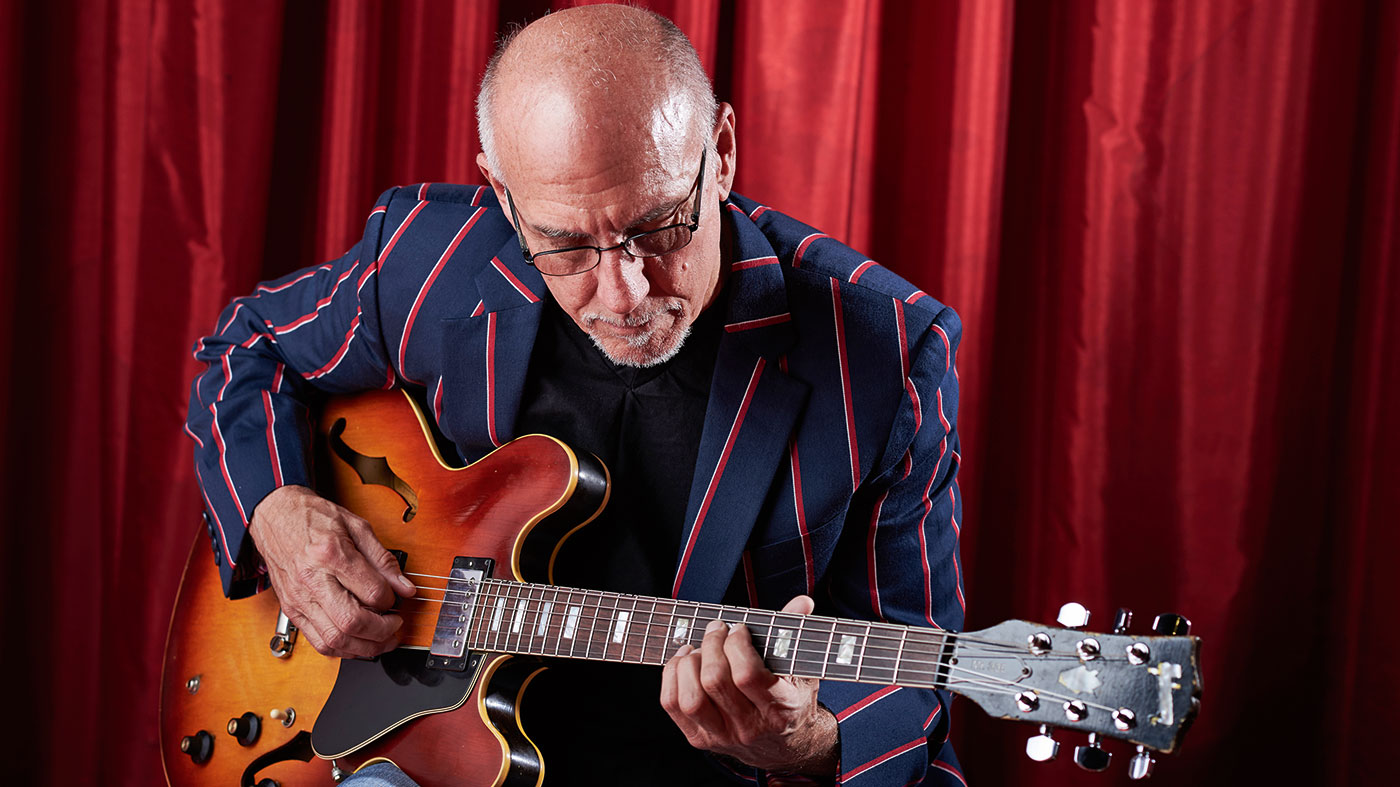
“So that was my very first lesson… and I never forgot it. If I want to understand where a player’s at in his playing, let’s just play a blues and you just play eighth notes and I will hear every ‘clam’, and every hole in your harmony that you don’t quite understand.
"That was my first encounter with Joe. And I went home, I must confess, with my tail between my legs, as a guitar player. I wasn’t ready for half of the stuff that Joe wanted, or I wanted him to show me.
“So I went back to see him almost two years later. I had grown to another level and I could actually absorb some of the things that Joe shared with me. And, he actually called me on his own when I was in college and he said to me, ‘Larry, I’m leaving the George Shearing Quintet, I think that would be a good gig for you, would you like to audition for it?’
”Joe was a big hero to me, and I only spent the two lessons with him, but I learned so much about how to do the guitar right.”
10. Chuck Schuldiner (Death) by Ol Drake (Evile)
“The first time I heard Death, it was their Sound Of Perseverance album. I remember being immediately intrigued by the strange chords Chuck would use. It prompted me to pick up the guitar immediately to work that stuff out.
"I then picked up a lot more Death albums and information on the man behind the music, and came to realise that Chuck was not just an awesome guitarist, but an outstanding songwriter and person too.
“He created timeless, excellent riffs. I love his use of 9th power chords, as well his sense of melody in his otherwise very technical solos. He didn’t just try to show off. I could go on for hours about his playing to be honest.
“After viewing a tribute I made to Chuck on YouTube, his mother Jane kindly let me know how much of a comfort it was to her that people still love and remember him and his work. If you’re a metal guitarist, you really must hear everything Chuck gave to the metal world. A true legend.”
11. Tony MacAlpine by Mike Mushok (Staind)
“He’s my old guitar teacher from Springfield, Massachusetts. He’s such an amazing musician – he changed everything for me. I started taking lessons from him when I was 13 or 14 and within six months we were duelling back and forth. Great person, great musician.”
12. Brian Tatler (Diamond Head) by Dave Mustaine
“I really respect the guy a lot as a player – an unsung hero? Yes. Diamond Head have got kudos from the Metallica guys and me but I don’t think that’s translated into popularity. I think for some reason they haven’t been able to convince people to check them out. But that doesn’t take away from Brian’s playing – he’s still one of my favourite guitar players in the world.
“Brian is a guy that I wanted to do a side project with and we tried to do it and it never materialised – that’s going to be one of the unrealised dreams that I’m going to be sad about when my career comes to the final chapter.
“I love his riffing and he has a really sad approach to some of the chords – it’s mostly minor stuff. If I hear a song like Shoot Out The Lights, that’s really happy, but songs like Borrowed Time and Heat Of The Night and those things are just so sad. I love them. We played so many songs from Lightning To The Nations in [Mustaine’s former band] Metallica. We played four songs off that record [live] and I think there’s only seven songs on it!”
13. Blind Willie McTell by Ralph McTell
“To me, [it’s] the essence of what is rather impolitely called the primitive blues – in other words the music that doesn’t stick to 12 bars. I love it when the guitar player’s having fun and he just plays an extra couple of beats o r bars, or uses unconventional chords to resolve the 12 bars, Willie McTell and Robert Johnson from these guys, from McTell in particular, is that there’s no embarrassment about having melody and harmony.
“Willie McTell is such a musician, such a natural musical talent that if a song appealed to him he would try it, something like Baby It Must Be Love, a hit of the day.
"He wrote Statesboro Blues, which is largely ruined by every other guitar player who tries to play it, and there’s an energy and swing, spirit and melody and harmony to it. Plus he’s got a beautiful voice; there’s a symbiosis between guitar and voice that I believe has happened with me over the years, too.”
14. Abbath (Immortal) by Ivar Bjørnson (Enslaved)
“Abbath is an incredible guitar player, but because he’s the vocalist and has a larger than life personality I think it’s often overlooked.
"Our guitarist Arve [Isdal] worked with him on the [Abbath’s other band] I album [Between Two Worlds] and he showed us some of the techniques Abbath uses – it’s pretty involved. It’s not just about fast-picking notes, but some particularly unusual rhythm patterns. Then there’s the whole riff side to his playing – he writes very memorable riffs.
“Like myself, he’s not really a lead player but he’s still definitely someone you’d want in the band! I think newcomers should start with the Immortal album, Sons Of Northern Darkness – it’s probably the most accomplished from a guitar perspective. There’s great communication between the drums and the guitar playing on that album.”
15. Joey Santiago (Pixies) by Gavin Rossdale (Bush)
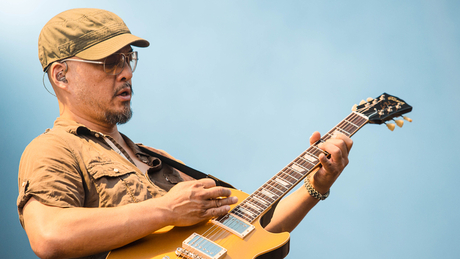
"I was afraid people would tell me I never grew up as a guitar player... but f**k it, so what?"
“People wouldn’t necessarily rush to call him the greatest guitar player ever, but to someone like me, he’s a phenomenal guitarist.
"All those brilliant, anthemic semitone lines. He does what all the best guitar players do – they elevate great songs and give them melodic counterpoint and harmony. The best songs for me are simple, they’re not about complicated sets of chords.
"It’s to do with the ease of listening. And I think the guitar is such an emotional instrument that complexity detracts – simplicity and tension is what creates interest for the listener. So, it’s that counterpoint between the guitar lines and vocals. It doesn’t have to be complex.”
17. Wolf Hoffman (Accept) by Zoltan Bathory
"It’s like a lion tackling you, just to show he could kill you, but then at the last second he lets you go"
“It’s the balance. I think he’s the perfect guitarist who understands what a band should be.There is just enough ‘shred’ so you know he could play your eyes out, but he never steps out too far because the song is more important to him than showing off the chops.
“Even the control he has over his guitar says a lot about him – the solos are melodic, calculated, yet have enough passion and emotion. And just when he takes them to the edge of explosion, he stops, like the cool-headed German he is.
"It’s like a lion tackling you, just to show he could kill you, but then at the last second he lets you go. Controlled power is much more interesting to me than raw power itself, because it indicates the presence of intelligence.
"Heavy metal should be loud, raw and obnoxious, but shouldn’t be a cavalcade of noise just to blow your head off. Wolf gets that. I get that too.”
18. Dustie Waring (Between The Buried And Me) by Tosin Abasi (Animals As Leaders)
“Between The Buried And Me are an adventurous band. They have compositions that are very dense and go through many movements. Everyone in the band is a phenomenal musician so there’s a lot of complexity sandwiched in between the oases of strummed chord progressions. They’re ambitious with every song.
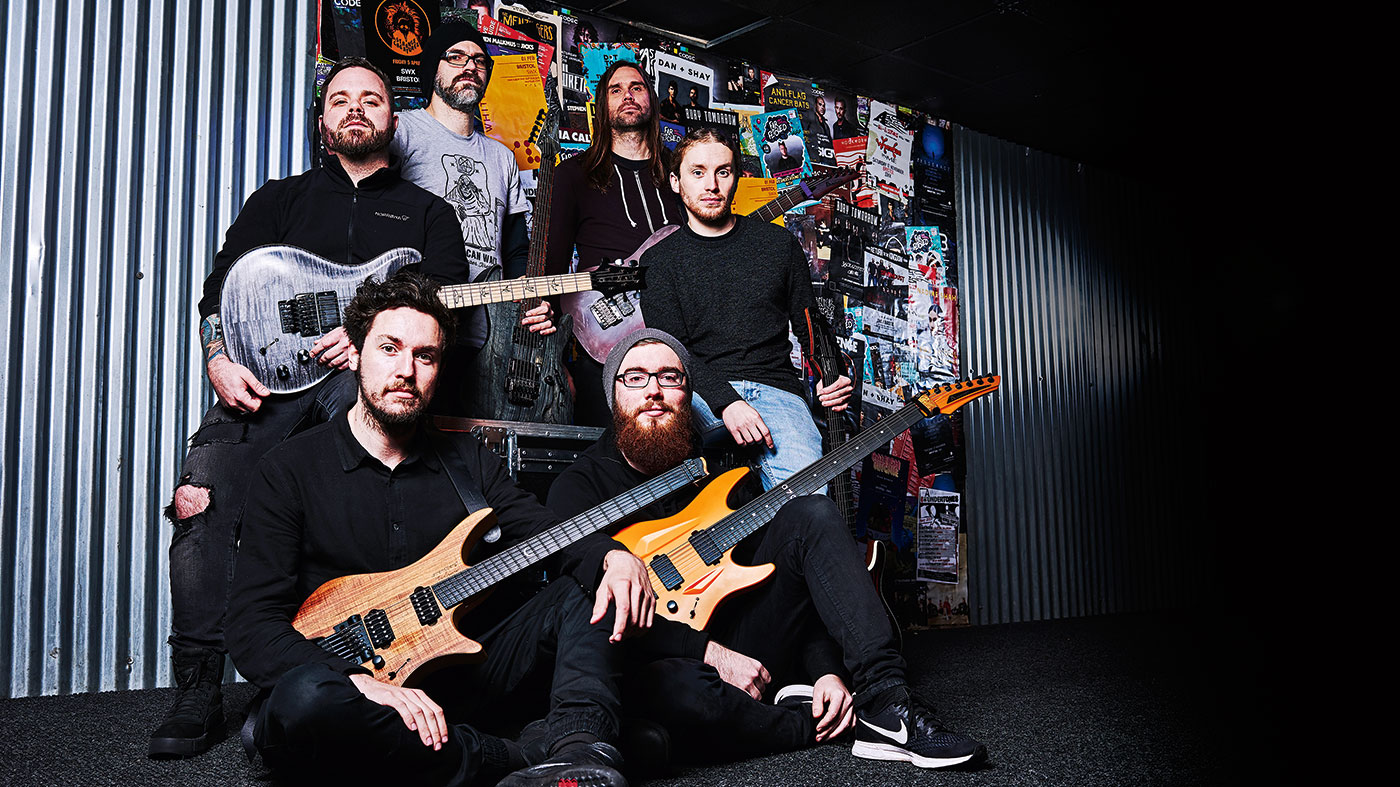
Between The Buried And Me / Plini / Tesseract talk tone, technique and the evolution of prog metal
“I’m not sure if Dusty gets the recognition he deserves as a guitarist though. I’ve known him some time and have seen him really progress as a player. He’s got an amazing tone and feel; very clean. I’ve toured with him when Animals As Leaders played with his band and hearing him play every night, listening as he soundchecked – I realised how good he was. I hope people pay him more attention.”
19. John McGeoch (Magazine) by James Dean Bradfield (Manic Street Preachers)
"That’s what he taught me, you can have that rock ‘n roll swagger, but still build something into it that’s really unsettling, and can cut like a razor blade"
“The first time I recognised John McGeogh was Magazine’s Real Life. He was the person who taught me that you can have a swing and a rock ’n’ roll to your playing, but you can also introduce something that skews it.
"The solo from Shot By Both Sides, which is fucking brilliant, is rock ’n’roll and has Chuck Berry licks, but it also has an atonal quality – it shoots off, goes up-tempo and walks like a robot… That’s what he taught me, you can have that rock ‘n roll swagger, but still build something into it that’s really unsettling, and can cut like a razor blade.
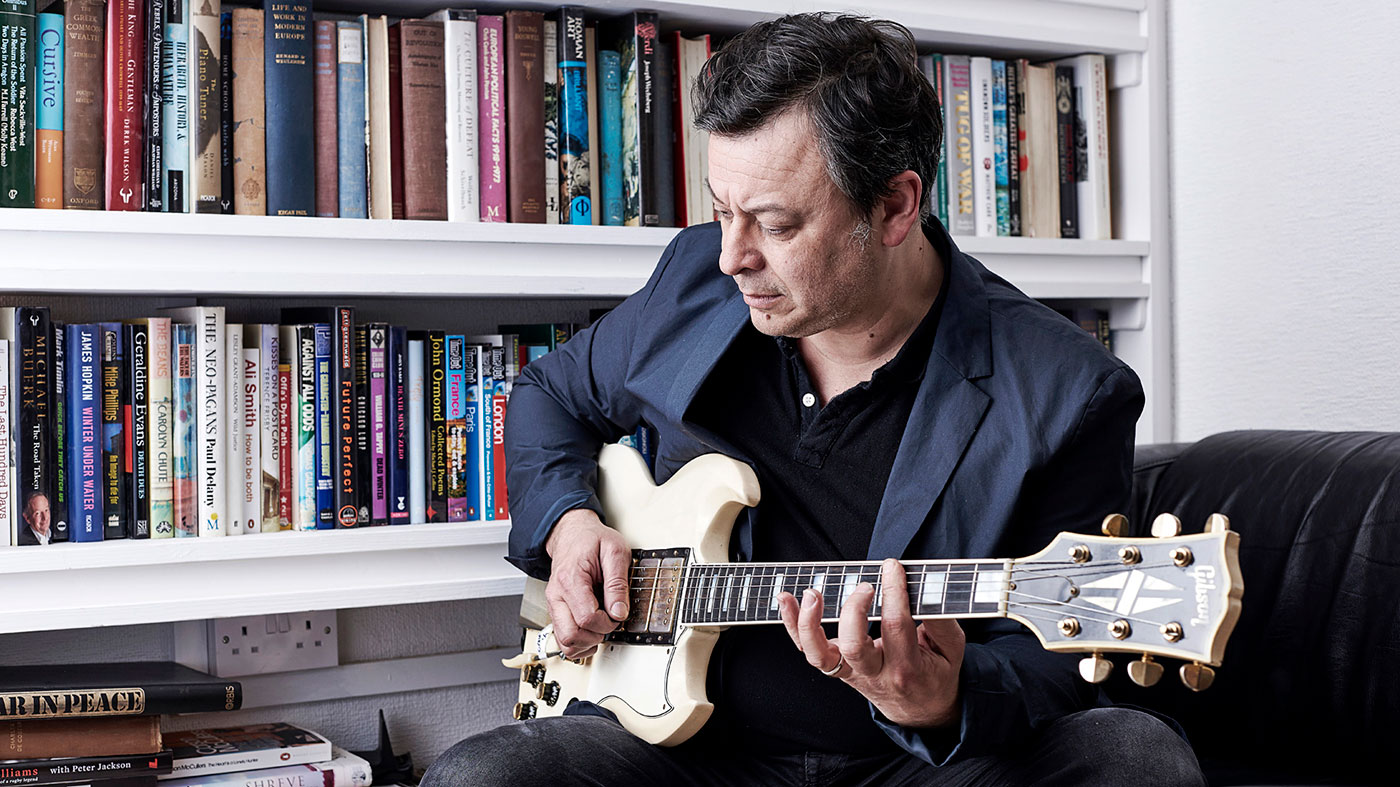
Shot By Both Sides was a complete revelation to me, absolutely and utterly one of the best solos ever, as an idea as much as anything.
“And he also taught me to sometimes just respect one string of the guitar. When you start to play guitar and are influenced by certain things, you get to a point where you want to master as many strings as possible and to go across them.Then someone like John McGeoch just grabs you and says that it doesn’t have to be like that.Just play this riff up and down one string, and it says more than you could ever have said with six strings.
"He was absolutely brilliant at taking pride in just doing what was right for the song. John McGeoch taught me that you didn’t have to give up the rock and the roll to be slightly avante garde. He was a genius.”
20. Marc Rizzo (Soulfly, Cavalera Conspiracy) by Max Cavalera (Soulfly, Cavalera Conspiracy)
"He lives with his guitar 24 hours a day. I think at one time his girlfriend was jealous of his guitar!"
“He gets respect from the fans but he doesn’t get any mention in guitar magazines. That’s bullshit, because he’s amazing. I’ve been around guitar players my whole life and he can really, really play.
“He’s not just a shredder – he can play latin, Brazilian and jazz – all kinds of music. He lives with his guitar 24 hours a day. I think at one time his girlfriend was jealous of his guitar!
“Our playing dynamic together gets better and better. My wife Gloria was the one who put us together – she found Mark. She said that she wanted to make Mark and I like Lennon and McCartney! I liked that, and with every album Mark gets more and more involved with the writing. We get along great and we like each other’s playing style.
“He joined Soulfly for the Prophecy album (2004), but I’d definitely recommend his solo albums too.”
21. Frank Marino by John Norum (Europe)
"His solos take your breath away"
“Frank Marino – one of my favourite guitar players. I used to listen to him a lot in the late seventies and I’ve gone back to his music lately. I went out and bought all his CDs in remastered form. It reminded me that this guy is just incredible.
“His solos take your breath away – they’re super-charged. I think, Oh man how does he do that? But he has a lot of feel at the same time. He’s one of the few guys that can play super fast and play with feeling at the same time. ”
22. Christopher Amott (Dark Tranquillity) by Gus G (Firewind)
“I filled in for him in [Arch Enemy] back in 2005. He’s a great player who doesn’t get enough attention; his brother is better known. I think when he was younger he was trying more to e mulate his brother, but he has his own style, and I think he’s more of a shredder than Michael. He’s a very clean player and very well rounded, because he can play other styles too.”
23. Donald 'Buck Dharma' Roeser (Blue Oyster Cult) by Satchel (Steel Panther)
"A lot of guys don’t listen to Blue Öyster Cult, but they were metal before metal.Those guys have been around since the seventies. They’re famous for the More Cowbell thing with (Don’t Fear) The Reaper [check out Christopher Walken’s legendary Saturday Night Live sketch on YouTube].
"The guy has never hit a bad note – he’s just great .Every solo they have ever done has been tasty, and that guy could shred before it was easy to shred. Before they had amplifiers that covered up your tone! This guy was shredding through a Fender Twin – he’s awesome.
“He’s one of my favourite guitar players of all time – so go buy some old Blue Öyster Cult stuff. The things he was doing on the Secret Treaties record… on every record they ever did for that matter, the guy was shredding.
"There’s a bunch of guys playing out there that are underrated, but for me, he’s absolutely the first one that comes to mind when it comes to not getting credit. He deserves it. Oh, and Eddie Van Halen is really good too…”

Rob is the Reviews Editor for GuitarWorld.com and MusicRadar guitars, so spends most of his waking hours (and beyond) thinking about and trying the latest gear while making sure our reviews team is giving you thorough and honest tests of it. He's worked for guitar mags and sites as a writer and editor for nearly 20 years but still winces at the thought of restringing anything with a Floyd Rose.
“I can write anything... Just tell me what you want. You want death metal in C? Okay, here it is. A little country and western? Reggae, blues, whatever”: Yngwie Malmsteen on classical epiphanies, modern art and why he embraces the cliff edge
“You're by far the best guy that we've tried. I would love to have you in the band”: So why did Trent Reznor turn down Richie Kotzen for Nine Inch Nails?








